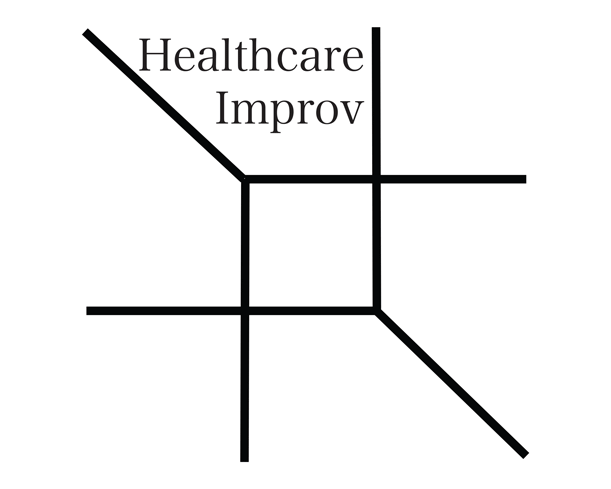Stranger in a Strange Land/A Martian Named Smith
Thank you for clicking, I welcome you to this entry of thoughts on improv and healthcare. Today is another exciting day where I will actively engage in both healthcare and improv, one of them more formally than the other.
Today, the health system that I work for is expanding visiting hours in the hospital to 6A-8P. I am very thankful that the hours are being extended and happy that this was decided because COVID cases had decreased so much in our area. Without getting into whether that should be or should not be the case, I am pondering the role of patient visitors in the healing process. There are several anecdotal stories that are horrific of patients dying afraid and alone in the hospital. That seems pretty clearly bad and to be avoided at all costs in the future. I have also had patients in the hospital that were prone to delirium but could be easily calmed down and re-directed by a loved one. That is also bad and should be avoided, if possible, in the future. What about everyone else. As a hospitalist, I only see patients in the hospital, so I am certain that every hospitalized patient does better with a visitor present for discussions of care. A visitor is way better that if the care team calls a patient’s loved one every day. When I round on the patient and discuss the care plan, the patient is usually sick (they are in the hospital after all), and it would be silly to expect them to remember all the important points from all the different doctors and healthcare professionals they meet throughout the day. That is to say nothing of the difficulty sleeping in the hospital with all the beeping, frequent interruptions to check vitals, labs, etc., and the hospital mattresses aren’t usually Tempurpedic, in fact they are usually noted for how uncomfortable they are. So, the patients are usually sick, sleep deprived, and, oh yeah often not fed. This is not the case for all patients, but almost all patients have some combination of those complaints. It is quite obvious how important a visitor is to help the patient navigate this experience. I have had several recent experiences where friends and family asked me to go visit someone who is in the hospital. I did and they thanked me profusely for stopping by. I didn’t look at the patients’ charts and had limited knowledge of their medical issues, so my conversation with each person was almost entirely non-medical. Before the pandemic, I had moments when close friends and also close family members were in the hospital. I always tell myself to be serious before entering the room but frequently end up sharing laughter with the people in the room. I have also maintained the solemn mood if the situation called for it. I think both experiences can be important for patients and their families in an unknown situation. I have also drawn a deep sense of meaning and lessons about what it means to be a doctor from these situations where I was the visitor. With the visiting hours limited during most of the pandemic, I have had to serve as role of the visitor. I need to do an even better job of making sure patients are comfortable with the plan and have the resources to execute the plan when they leave the hospital. All of that is much easier when the patient has a visitor sitting by their bed. Overall, my job is to organize large amounts of information into an actionable plan to improve peoples’ health. Patients have access to all their health information as it currently stands. They can look up all their labs and the notes from other healthcare providers. My role is to make sense of the information and to organize the information in a way that people understand. My expectation of myself is that I continue the extra effort I have had to make when patients weren’t able to have as many visitors now that there will be expanded visiting hours.
What does any of this have to do with improv you may ask. Well thank you, I am glad you asked. When I was an official visitor, I always told myself to be serious walking into the room. Some of the time, I did maintain a serious tone, other times I was able to share in laughter. Many times, both joy and sorrow were experienced in the same visit to the hospital room. Both ends of the spectrum between solemn and levity have been meaningful for me and served the patients. I used improv skills to respond to the emotions of the people in the room. Finding the emotion, connecting to it, and responding is what led to those meaningful moments for me as a visitor. I practice that every time I step on the theater stage. I practice it every time I go into a friend or family member’s room. I practice it every time I go see a patient. Each of those times is an opportunity to add meaningful connections in my life and makes me better able to connect to the emotions of future patients

